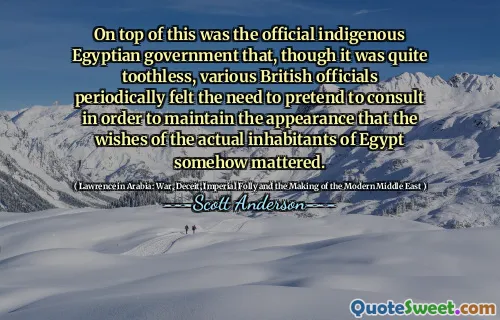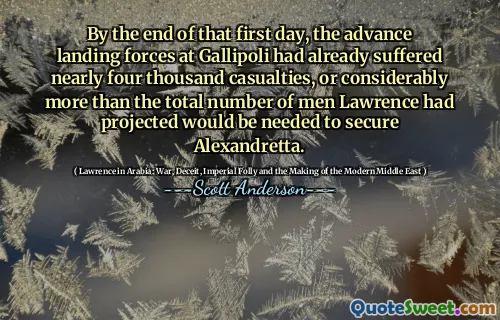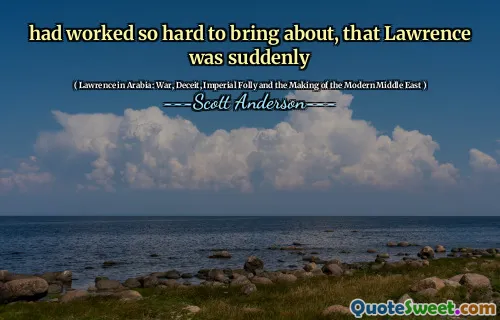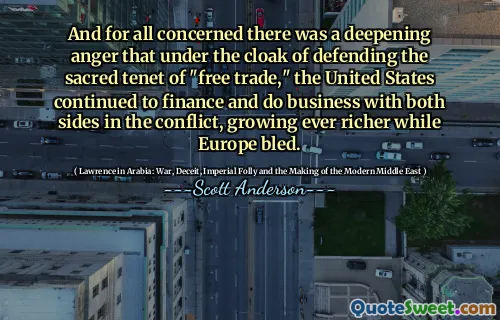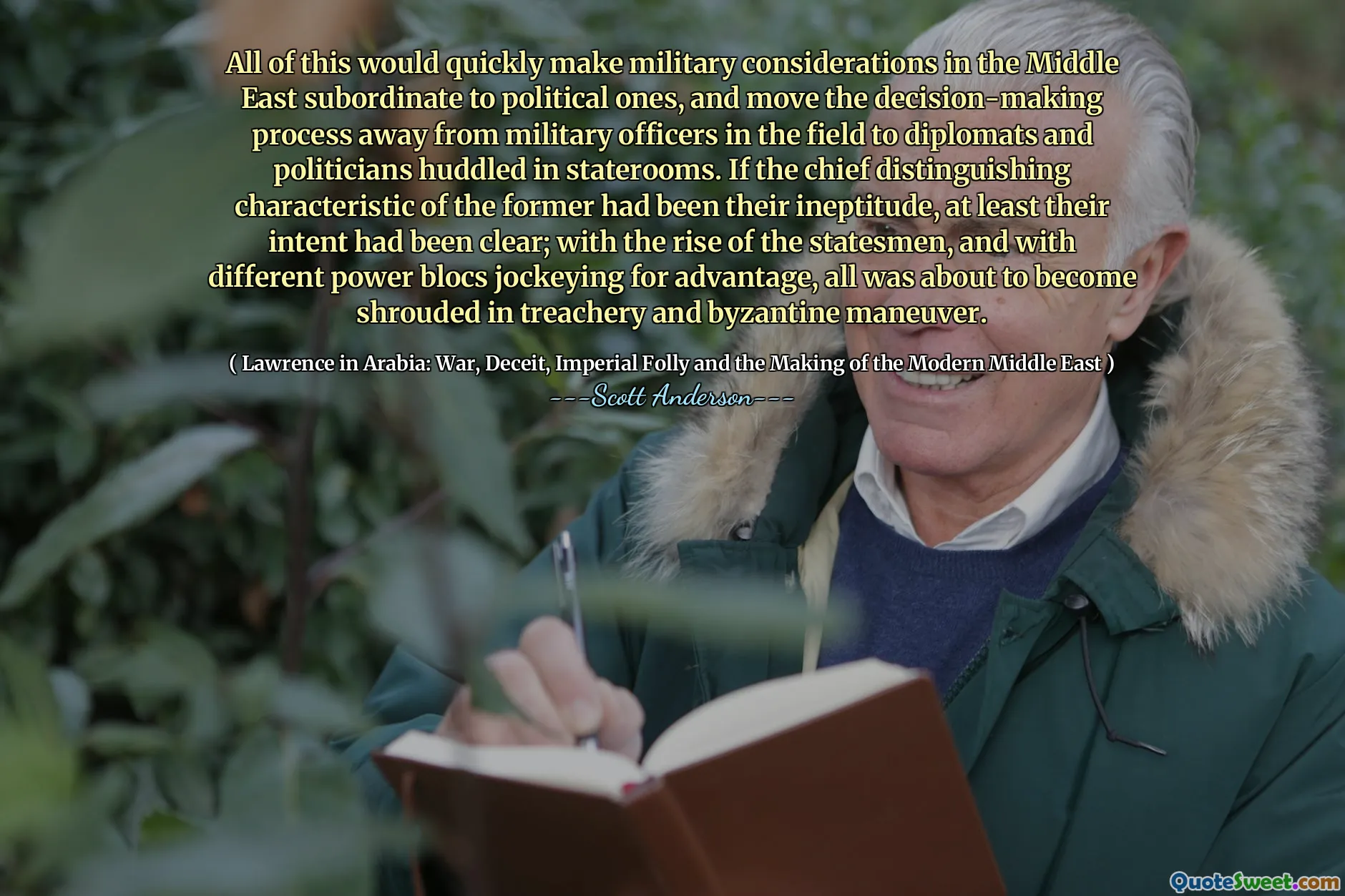
All of this would quickly make military considerations in the Middle East subordinate to political ones, and move the decision-making process away from military officers in the field to diplomats and politicians huddled in staterooms. If the chief distinguishing characteristic of the former had been their ineptitude, at least their intent had been clear; with the rise of the statesmen, and with different power blocs jockeying for advantage, all was about to become shrouded in treachery and byzantine maneuver.
The military dynamics in the Middle East were shifting priorities, making political considerations more important than military ones. As a result, decision-making power moved away from on-ground military leaders to diplomats and politicians who operated from the comfort of their offices. While military officers may have been seen as inept, their objectives were clear, unlike the complex and often deceitful strategies that emerged with the political leaders in charge.
This change led to a landscape where various power groups sought to gain advantages through intricate plots and political maneuvering. The clarity of military intent gave way to a murky environment filled with treachery, complicating the already turbulent situation in the region. The transformation signified a critical juncture in how conflicts were managed and manipulated, thus reshaping the future of the Middle East.

